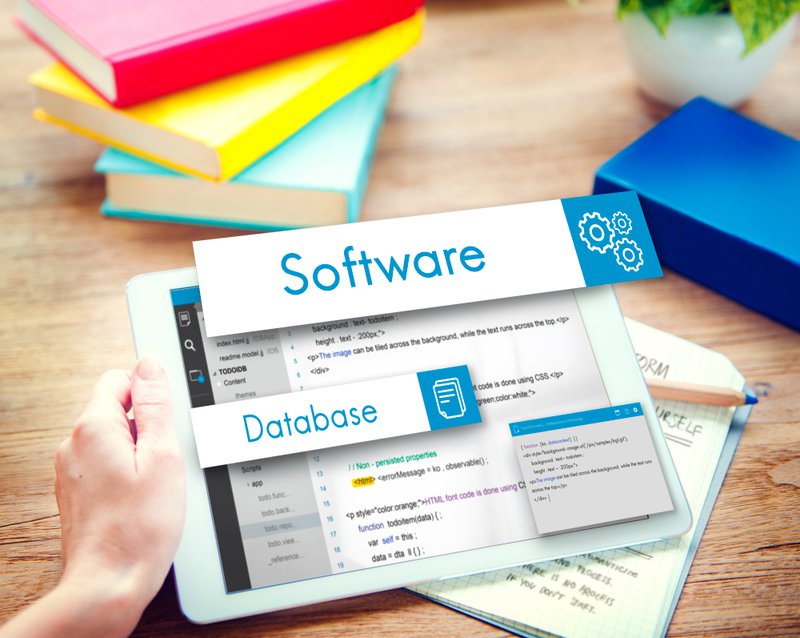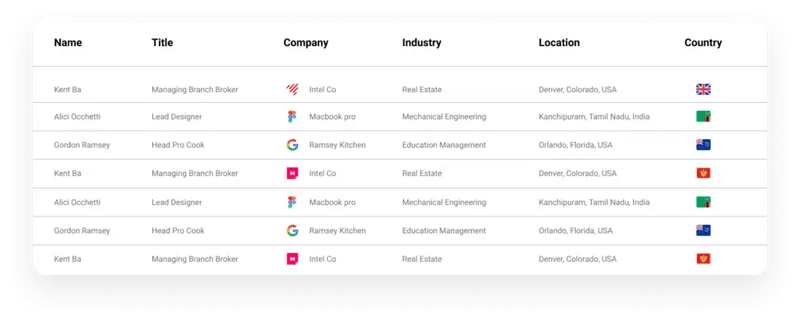As a business person, how do you approach your prospective clients? Do you follow a customer-centric approach or not? Do you try to understand what your customers need, and respond with engagements that meet these needs? If your answer is “Yes,” you are probably familiar with database marketing.

Real-time data. Actionable insights. 360 customer views. Personalized engagement strategies. Omnichannel campaigns. These may be buzzwords, but they’re also critical to effective marketing and business growth, and database marketing is the key to all of them.
Database marketing, aka customer relationship management, is a process where you collect, organize, and analyze consumer data in such a way that you can use it to better communicate with existing or potential customers.
It frowns upon the “one size fits all” standard marketing approach, adhering instead to the axiom that people respond better to more tailored, more personalized marketing. Simply put, database marketing involves understanding and managing your customer database.
Database marketing is an extension to direct marketing.
It allows the increase of customer engagement and loyalty programs for businesses. One of the main reasons marketers use database marketing is due to its power to create a personal shopping experience for customers. Not only that, but it also improves the efficiency of your marketing.
There are two types of database marketing: Consumer Database Marketing and Business Database Marketing.
This type of marketing is used by B2C or D2C marketers who sell their products direct to the customer.
Generally, B2C companies apply some basic strategies like free giveaways, free shipping, discount offers, contests, and account registration during checkout to collect the consumer database.
These usually help them collect the first and last name, email address, phone number, gender, location data, transaction history, postal address. Through third-party data sources, other attributes like household size and income can be appended to the customer file.
Once they built the consumer data they can send personalized advertisements, offers, or promotions through various sources of marketing like Social media (Facebook, Instagram, Email, postcards, and more)
This type of marketing is mainly done for B2B companies that sell directly to businesses.
In the Business database, the information is more advance compare to the consumer database focused on high-value targets. That’s why this database is smaller than the consumer database, also subject to lower restrictions and privacy limitations.
The Information gathered in this database is a company Email address, company profile, job titles, annual turnover, company/employee size, estimated annual revenue, SIC and NAICS codes, technology stack, and LinkedIn profiles. This information can be easily acquired through a data provider.
The primary goal of B2B database marketers is to reach key decision-makers in organizations at scale through benefit-driven emails, industry-focused social media ads, and targeted direct mail pieces.
Database marketing enables marketers and advertisers to create relevant messages to their current and potential customers. When done right, there are many benefits of database marketing.
Here are a few:
To keep database marketing work smoothly, marketers need to follow some basic steps:
If marketers want to sell their products in the market it is necessary to find out the targeted audience which is possible through data collection. It includes name, address, or other demographic information about the customer. This data will be collected from third-party bodies or directly through the customer.
After data collection, the next step would be analyzing the data and gather the information that can be used for marketing.

For making a model of customer behavior marketers can use a Database management System or Statistical Techniques through which they can make a decision on which type of customer will be targeted.
Once you’ve collected the data, you need to communicate with the identified customer by sending the promotions and keep them updated by using digital media like email.
It is important to keep the frequency of these emails in check to avoid flooding the customer’s inbox with too many updates. This can also easily end up in the spam or junk folders.
Database marketing is not just about sending promotional emails or creating a list of the targeted audience but it is more than that. By deep analysis of this information, marketers can make future business strategies.
How should you get started creating your own database marketing strategy? Here are a few things to consider.
How old are they? What income level? What job title? Where do they live? What are they interested in? What else do they buy? Build a detailed ideal customer profile for your product, and then use this profile to decide what kind of information you need to include in your database.
Marketing, sales, and support all have direct contact with customers and prospects. What information does each team need to be effective?
Customer data doesn’t do anyone on your team any good if they can’t access it. Choose a tool that makes it easy to see different kinds of information, customer types, and even organize customer information to match your different product or service categories.
Look to both internal and external data sources, including, acquisition data, demographic data, technographic data, activity data, psychographic data, transaction data, and correspondence data.

Building a customer database takes a lot of time and effort. Protect your investment by safeguarding against power outages and technical glitches.
CRM software can automatically update profiles when customers enter new information, and online tools can protect against data decay by integrating with your software and updating each contact as they browse your website with activity data.
Social media makes it easier than ever to get detailed insights into your customers’ interests, perspectives, and life updates. Effective personalization is about providing a relevant message to an interested audience, not proving how much personal data you have.
Though effective Database Marketing is essential for overall success, it comes with both benefits and challenges. Here are the benefits and challenges of database marketing:
Today’s consumers expect a personalized experience with your brand. To deliver one, marketers need a unified view of each customer across every touchpoint. Only then can they understand the customer’s journey and engage them in a meaningful way. Database marketing strategies make that easier.
Customer databases can help you:
Database marketing offers some compelling benefits. But to do it successfully, marketers need to understand the challenges as well.
Watch out for these database marketing challenges:
Anytime a customer or prospect changes jobs or earns a promotion, moves to a new address, changes their name, gets a new email address, or makes any other life change, their profile becomes out of date.
A well-managed database decays at an average of 2-3% each month, which means in just a year, a third of your data could be invalid. To limit data decay, focus on information that is less likely to change: name and phone number, for example, rather than business email.
You can also use an email and phone verification service to make sure you have the latest information in your database.
We recommend VerifyBee - an intuitive, feature-rich, and affordable customer verification software. It is built for businesses looking to streamline their sales, intake, outreach, and customer relation efforts.
Customers don’t always provide accurate information. Typos, handwriting legibility, or incomplete info can have a big impact on the quality of your database. You can limit inaccuracies by replacing input fields with standardized drop-down menus or checkboxes.
Collecting and analyzing customer data is just the first step. You have to act quickly enough to capitalize on a customer’s interest in and interactions with your brand.
This is where marketing automation tools or B2B Database Software become so important.
By unifying rich user profiles with a powerful segmentation and omnichannel marketing campaigns, you can deliver timely, personalized experiences for each user.
Database Marketing is a form of direct marketing. While the terms are used interchangeably at times, these are two distinct concepts. Here are the key differences between database marketing and direct marketing.
With thousands of advertisers fighting for customers’ attention every day, the need for a database marketing strategy is critical. The businesses that place their customer’s needs, experiences, and preferences will always come out on top!
If you’re looking for a B2B Database providing tool to help you in this process, you can give OneMoreLead a shot. With a database of over 40 Million verified B2B prospects to search from, OneMoreLead allows you to easily find the perfect prospect for your product or service.
So what are you waiting for? Book a OneMoreLead demo today!